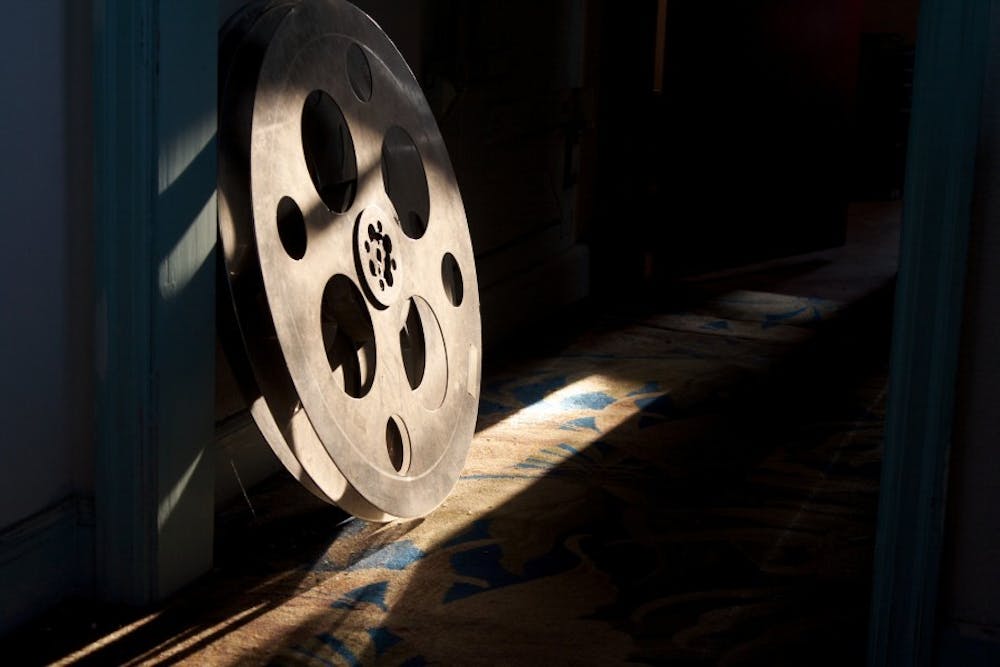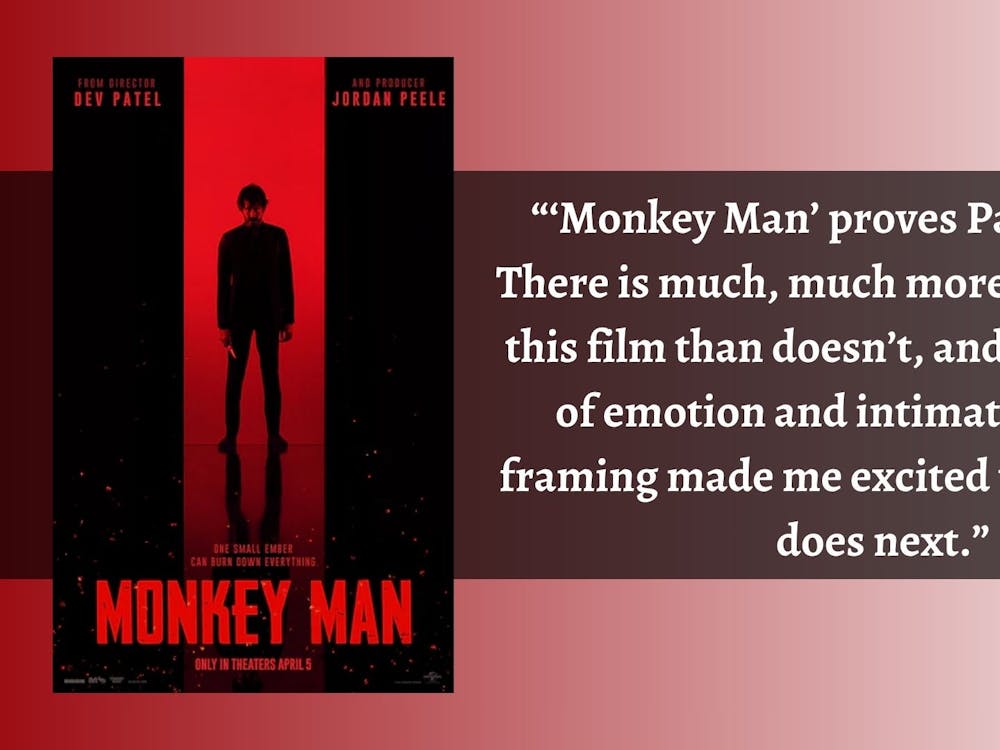By Olivia Lewis, The Miami Student
Given that there are over 64 million Netflix subscribers, and Oxford no longer has a working movie theatre, we'll be bringing you weekly movie reviews solely about films available to stream on Netflix. Happy Netflix-ing.
A spaghetti western sandwiched inside a World War II rewrite, "Inglourious Basterds" (2009) is filmmaker guru Quentin Tarantino's ultimate homage and bloody valentine to pulp war fiction.
It's a dream of Jewish revenge come-to-life, that is, if this includes a cinephile fantasy where a humble movie theater brings Hitler to his bloodied demise.
The flick opens with a picturesque French countryside, where insidious Jew Hunter Hans Landa (Christoph Waltz) intimidates a weary farmer in order to discover the location of a Jewish family stowed beneath the man's floorboards.
Waltz delivers Landa with a silky courtliness that makes even requesting a glass of milk from one of the farmer's lovely daughters into a threat. He becomes less courtly, however, when the family's hiding spot is found and only a small girl escapes the ensuing onslaught of Gestapo fire.
This traumatized little girl later emerges in Paris as Shosanna Dreyfus (Mélanie Laurent), a steely Jewish heroine hell-bent on avenging her family from under the roof of her art-deco movie theater, which serves as the location of the film's climax.
Clad in paperboy garb and a pout that verbally stings Nazi enemies, Shosanna is Tarantino's epitome of a protagonist and she wears this title well.
Whether it's surviving deadly confrontations with her constructed non-Jewish identity intact (eating strudel with a Nazi has never been more tense) or burning down her beloved theater with highly flammable nitrate film, Shosanna greets each scenario with cool-headed bravery.
Her valor is matched only by the Basterds, a rambunctious, motley crew of Jewish American soldiers employed by the U.S. military to harvest the scalps of Nazis in occupied France.
Lieutenant Aldo Raine (Brad Pitt), with his cracker-barrel accent and the combative jaw of someone with an obvious vendetta, spearheads the Basterds with both bravado and ease. He chews each action with relish, carving a swastika into the foreheads of survivors he leaves as a warning to their superiors.
The squad's tactics are grisly, vengeful and certainly wouldn't be supported under the Geneva Convention, but, like most of Tarantino's work, "Inglourious Basterds" isn't as concerned with the historical accuracy of World War II as it is with the style of it.
Enjoy what you're reading?
Signup for our newsletter
Though Shosanna and the Basterds never interact onscreen, threads of the story are cleverly weaved so that they each hatch a covert operation to annihilate the Third Reich. These missions coincide at the premiere of Joseph Goebbels' (Sylvester Groth) latest Nazi propaganda film, which Hitler and other high-profile Nazi party members attend.
Like flashy frosting on a plain vanilla cake, Tarantino's film turns every WWII-era flick machinated by Hollywood onto its head. The plot is wrapped in a context that recalls the most biting of spaghetti western stand-offs.
The key characters express a hearty panache of banter, exchange stare downs and then engage in a polite duel of wits that concludes with either one or both of them dead. Though trite by itself, the mishmash of Western elements with more traditional war-movie clichés is refreshing.
As a chutzpah of cunning dialogue, it should be obvious by now that "Inglorious Basterds" operates more on violent punctuation than it does on violent action. But, by doing so, it sets itself apart from war-movies focused on violence without plot.
In one scene, members of the Basterds are disguised as German officers in a cellar bar, but are soon trapped in conversation with a real officer, whose wily verbal snags catch them red-handed. Viewers know that the scene must eventually dissolve into violence, but the film keeps the audience waiting a while.
This culmination of suspense coupled with clever wordplay leads to a shootout reminiscent of a one-act play.
The conversations do become exasperated at times and the pacing between dialogue and action doesn't vary enough. The way Raine cartoonishly juts his jaw and taunts German enemies with names like "Kraut" and "Lieutenant Frankfurt" can only be funny for so long before he just seems childish.
However, Tarantino creates a virtue of what must have proved itself an enormous barrier, lithely maneuvering between languages and whipping up a euro-pudding of humor from cultural and linguistic differences between Brits, Yanks, Germans, Italians and the French.
More than it's about World War II, "Inglourious Basterds" is about World War II as a movie genre. The film is Tarantino's gloriously absurd, savagely funny love poem to every great or cheesy WWII flick ever made. It's easily his best, most resilient contribution since 1994's Pulp Fiction, bearing a glamorous and mystifying blend that jeers at convention and then still has enough nerve to override the history books for one final, gutsy ending.
"Inglorious Basterds" is currently streaming on Netflix.
(4 ½ stars out of five)




